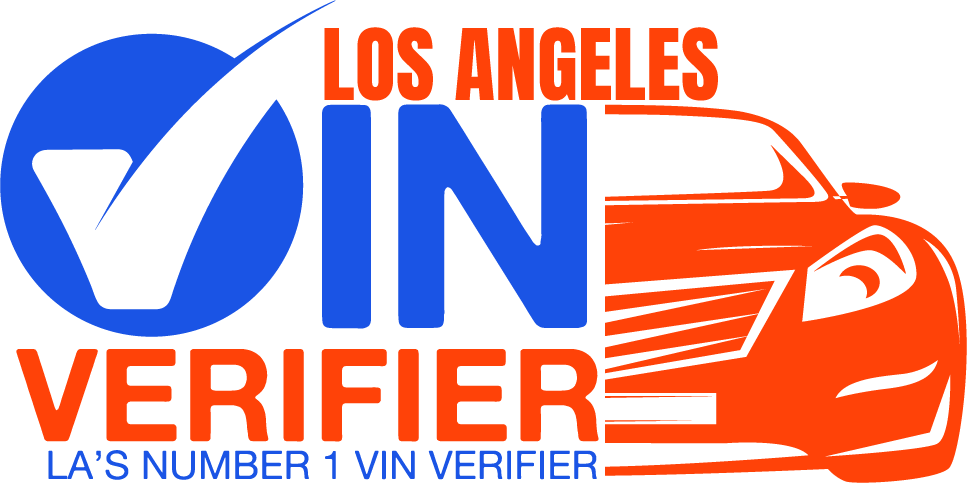If you've ever found yourself tangled in the complexities of vehicle transactions in Los Angeles, you're likely aware of the crucial role VIN verification plays. The Los Angeles VIN Verifier ensures that your vehicle's identification number matches up perfectly with official records, streamlining the process considerably. By utilizing their services, you not only adhere to California state laws but also avoid potential legal and financial pitfalls that can arise from discrepancies. Now, you might wonder what sets this service apart from others and how it could specifically benefit your vehicle transactions. Let's explore the nuances that make this verifier an indispensable tool for any vehicle owner in LA.
Understanding VIN Verification
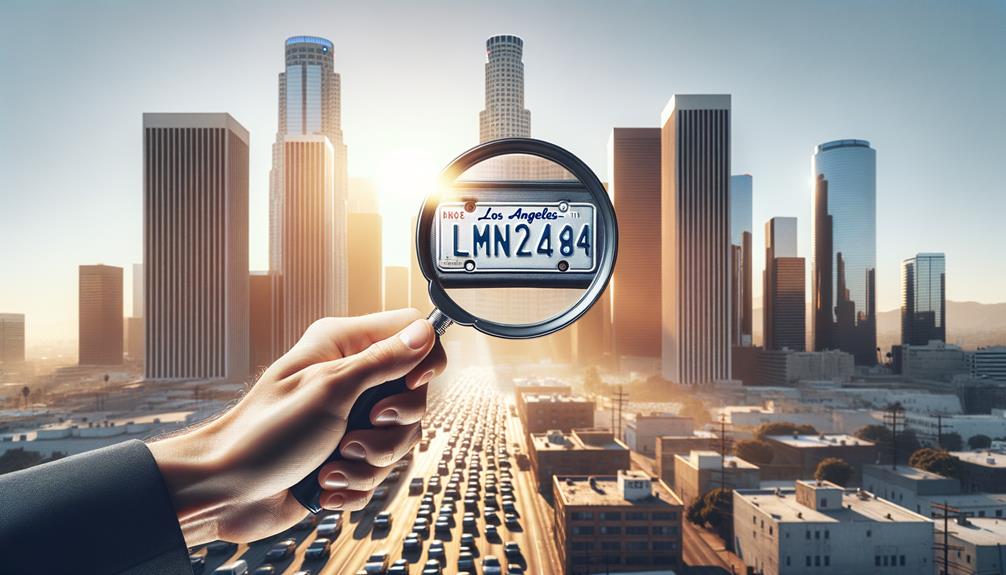
VIN verification is crucial in California to ensure a vehicle's identification number matches its official documents, helping prevent fraud and theft. When you're registering an out-of-state vehicle or ensuring compliance with California DMV regulations, you'll undergo this verification process, which is documented on the REG 31 form.
The vehicle identification number (VIN) is a unique 17-character code that's vital for identifying the specific characteristics of your vehicle, such as the manufacturer, model, and year. It's typically found on the dashboard or the driver's side door frame.
During the verification, authorized entities like the DMV, licensed VIN verifiers, or law enforcement agencies inspect the VIN to ensure it's authentic and matches the vehicle's condition. These authorized entities are trained to check not just the VIN but also the overall condition of your vehicle to confirm everything is in order.
This step is essential because it ensures that the vehicle meets all regulatory standards set by California and helps in maintaining proper records. Remember, certain vehicles, like revived salvage ones, aren't eligible for this process, so you'll need to check the specific requirements for your vehicle type.
Documentation and Requirements
To register your out-of-state vehicle in California, you'll need to provide an out-of-state title, Manufacturer's Statement of Origin (MSO), or registration card, along with a smog certification for gas and certain diesel vehicles.
As you navigate the registration process, it's crucial to understand the documentation required to ensure a smooth transition. Here's a guide to help you get started:
- VIN Verification: Initiate the VIN verification process through licensed vehicle verifiers. Ensure your vehicle from 1980 or newer displays a Federal Safety label; otherwise, it may be rejected.
- REG 31 Form: For most VIN verifications, you'll need to complete the REG 31 form. This form is essential for documenting the verification and is recognized by the California DMV.
- Additional Documentation: For commercial vehicles, a California Weight-master Certificate is required. New trailers in the permanent category might be exempt from some verification requirements, so double-check what applies to your vehicle type.
- Smog Certification: Ensure you have a valid smog certification. This is mandatory for gas vehicles and certain diesels and must be presented during the vehicle registration process.
Understanding these steps and preparing the necessary documentation will help streamline your visit to the California DMV, making your vehicle registration or transfer as painless as possible.
Inspection Process Overview
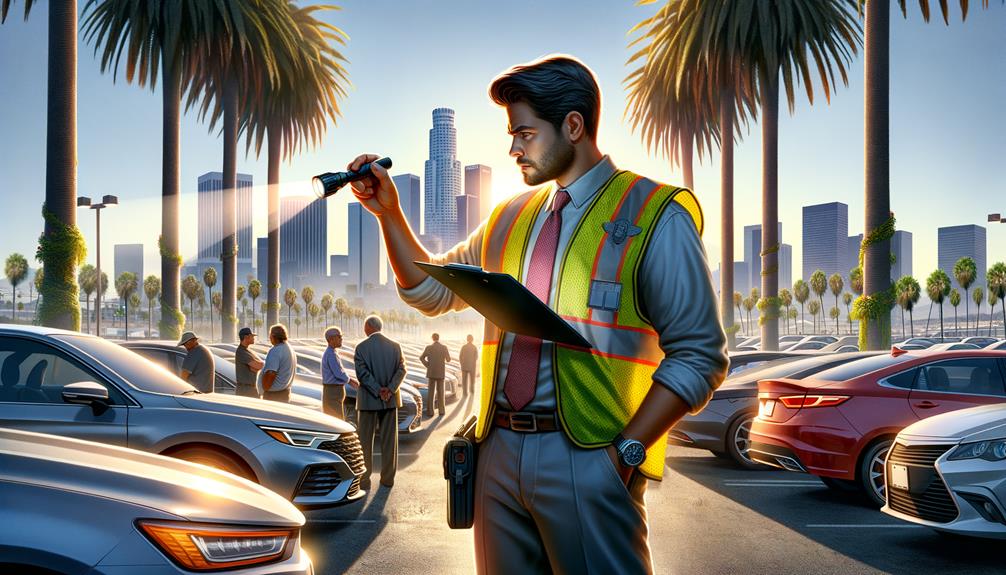
You'll begin the inspection process with a visual examination to ensure the VIN's location and condition align with your official documents. This step is crucial as it verifies that the vehicle you're registering is the same as the one detailed in your documents. The verification focuses heavily on matching the VIN accurately to avoid any discrepancies that could lead to potential fraud.
Next, the inspector will check other vital aspects of your vehicle, including the year, make, model, and odometer reading. These details must correspond with the information on your DMV paperwork to ensure everything is up-to-date and accurate. This part of the inspection is vital to safeguard against odometer fraud, which can affect your vehicle's value and legality.
Additionally, the status of the US Federal Certification Label is reviewed. This label confirms that your vehicle meets necessary safety and environmental standards.
Once every aspect is verified, the information is documented on the REG 31 form. This form is an essential document for DMV registration, confirming your vehicle's identity and compliance.
Service Area Coverage
Where can you access Los Angeles VIN verification services? The coverage area for these essential services is extensive, ensuring you can get your vehicles licensed and registered without hassle.
Here's a breakdown of the service area coverage:
- Major Cities: You're covered if you're in Santa Monica, Long Beach, or Pasadena. These key locations guarantee that you won't have to travel far to find licensed verifiers.
- Los Angeles County Neighborhoods: Various neighborhoods across the county are included, making it easy for you to schedule inspections close to home.
- Urban and Suburban Areas: Whether you're in the bustling heart of the city or a quieter suburban part, accessibility is a priority. Local verifiers are strategically placed throughout these areas.
- Incorporated and Unincorporated Communities: The service extends beyond the typical city limits, reaching out to incorporated and unincorporated communities within Los Angeles County.
With such comprehensive service area coverage, getting your VIN verification done is more convenient than ever. You can rely on the widespread availability of verifiers to ensure your inspection needs are met wherever you're in the region.
Scheduling Your Appointment
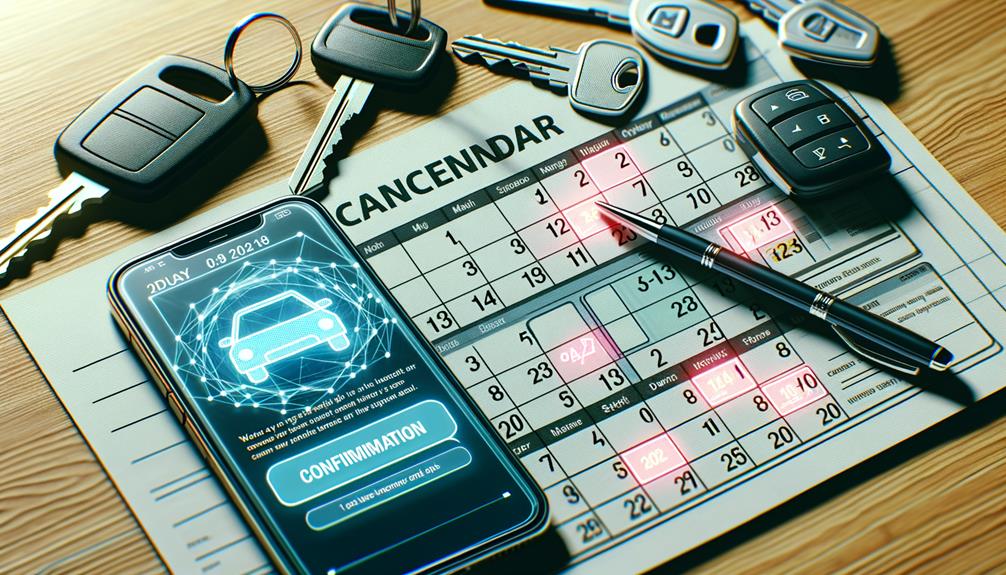
Scheduling your VIN verification appointment is straightforward, either by calling 310-598-5343 or using the online platform on the official website. This flexibility allows you to arrange the service at your convenience, ensuring your vehicle's inspection is timely and stress-free. You can choose a preferred time slot, making it simpler to fit the verification into your busy schedule.
Quick Auto Tags, servicing parts of Eastern Los Angeles County, offers both online and phone options to schedule your appointment. This ensures you receive prompt service without the hassle of a walk-in visit, which may not always secure you a slot due to high demand. It's recommended to schedule your verification ahead of time, especially if you're from a busier part of the county.
Payment Options Available
Los Angeles offers a variety of payment options for VIN verification services, including cash, checks, Zelle, Venmo, and credit or debit cards to accommodate your needs. Whether you're dealing with Quick VIN Verification or local registration services, you'll find flexibility in how you can pay.
Here's a breakdown of payment methods and related information:
- Quick VIN Verification: Charges $45 for in-person services and $150 for mobile services. They accept all listed payment methods, providing you with flexible pricing and convenience.
- California DMV and CHP: Offer VIN verification at no cost. This is a great option if you're looking to save money, although they don't provide mobile services.
- Local Registration Services: While they typically accept the same payment options as Quick VIN Verification, it's best to confirm directly as their accepted payment methods and charges might vary.
- AAA Members: If you're a member of AAA, VIN verification might be included in your membership benefits. However, keep in mind that AAA doesn't offer mobile verification services, so you'll need to visit their locations.
Additional Motor Vehicle Services
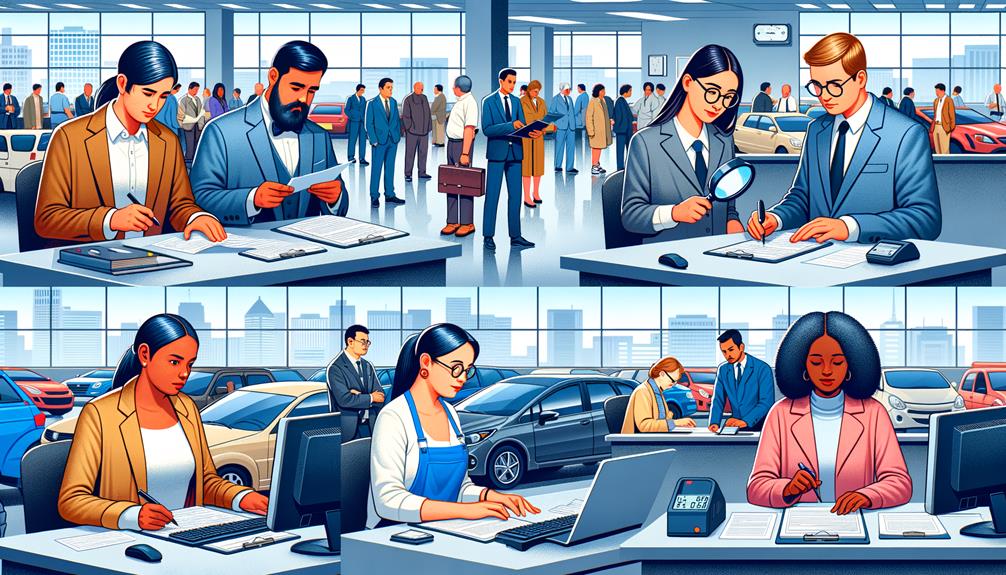
Quick VIN Verification's parent company not only handles VIN checks but also offers comprehensive licensed registration services to assist with a variety of your vehicle-related needs. Located in Torrance, this hub is your go-to for more than just VIN verification. You can count on Quick Auto Tags for all your motor vehicle services, ensuring your vehicle transactions are as smooth as possible.
When you're dealing with car registrations or need any assistance related to the California DMV, Quick Auto Tags has got you covered. They're fully equipped to handle a wide range of services, making them a valuable asset in Los Angeles for any vehicle owner. No need to stress about the paperwork; their licensed registration services are designed to streamline the process for you.
Should you have any questions or require further assistance, don't hesitate to call their contact number at 310-598-5343. Their team is ready to offer personalized support tailored to your specific needs.
Reasons for CHP Referrals
While Quick Auto Tags provides extensive services, there are instances where the California Highway Patrol (CHP) must step in for VIN inspections. This usually happens under specific circumstances where their expertise is crucial.
Here's why you might see a CHP referral:
- Early Model Vehicles: If you're dealing with early model vehicles, vehicle verifiers might lack the necessary experience to accurately identify VINs. This can lead to CHP referrals, ensuring that the VINs are correctly documented and comply with legal standards.
- Salvaged and Junk Vehicles: Newer vehicles that have been labeled as salvaged or junk need thorough inspections. The CHP checks these vehicles to ensure they meet state regulations before they're allowed back on the road.
- Engine Modifications: Motorcycles or cars with significant engine modifications can be tricky. If these modifications aren't documented in the DMV database, CHP's specialized knowledge is required to verify the VIN and update records accurately.
- VIN Discrepancies: When there are discrepancies in VIN records, it's vital to have accurate information for vehicle registration. The CHP steps in to resolve these issues, confirming that all details match up correctly.
These referrals are crucial for maintaining the integrity of your vehicle's registration and ensuring everything is up to code.
Cost of VIN Verification

Understanding the cost of VIN verification is crucial as prices can vary depending on the service provider and the type of service you choose.
In Los Angeles, opting for a quick VIN verification service at a fixed location typically costs around $45. However, if you prefer the convenience of mobile services, you're looking at approximately $150. This can be quite handy if you're pressed for time or can't visit a service center.
For AAA members, there's good news. You can access VIN verification services at no additional cost as part of your membership benefits. Remember, though, mobile options aren't available through AAA.
If you're not in a hurry, consider VIN verification services provided by the DMV and CHP. These are available at no cost and could be a budget-friendly option.
When it's time to pay, you've got plenty of choices. Accepted payment methods include cash, checks, Zelle, Venmo, credit cards, and debit cards. This flexibility ensures you can settle the costs associated conveniently.
Don't overlook local registration services, which might also offer VIN verification. Prices there can vary, and they're not always upfront about fees, so it's worth asking ahead to avoid surprises.
Vehicle Types and Special Cases
Now, let's explore the different vehicle types requiring VIN verification and examine special cases. VIN verification is crucial in adhering to California vehicle regulations and ensuring that all vehicles meet the necessary registration standards. Here's what you need to know:
- Standard Vehicle Requirements: VIN verification is mandatory for cars, trucks, and coach trailers. This step confirms that these vehicles conform to state registration standards and are legally eligible for operation on public roads.
- Salvage and Junk Vehicles: Salvage vehicles, often reconstructed from damage, require thorough VIN inspections. This process helps prevent fraud and guarantees that these vehicles are properly documented and safe for road use.
- Specially Constructed Vehicles: Vehicles that are uniquely built or modified from their original structure need VIN verification to ensure they comply with California vehicle regulations. This category also includes trailers that, if new and qualifying for the permanent trailer identification (PTI) program, might be exempt from standard verification.
- Exclusions and Special Cases: Not all vehicles can undergo VIN verification. For instance, motorcycles without proper documentation, revived salvage vehicles, and gray market imports are typically prohibited from verification due to varied compliance and safety issues.
